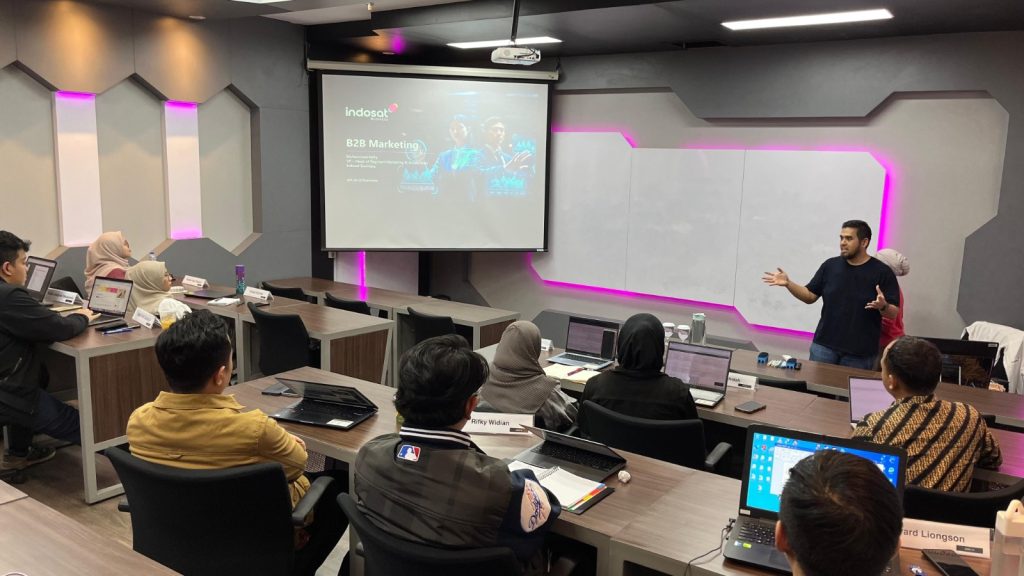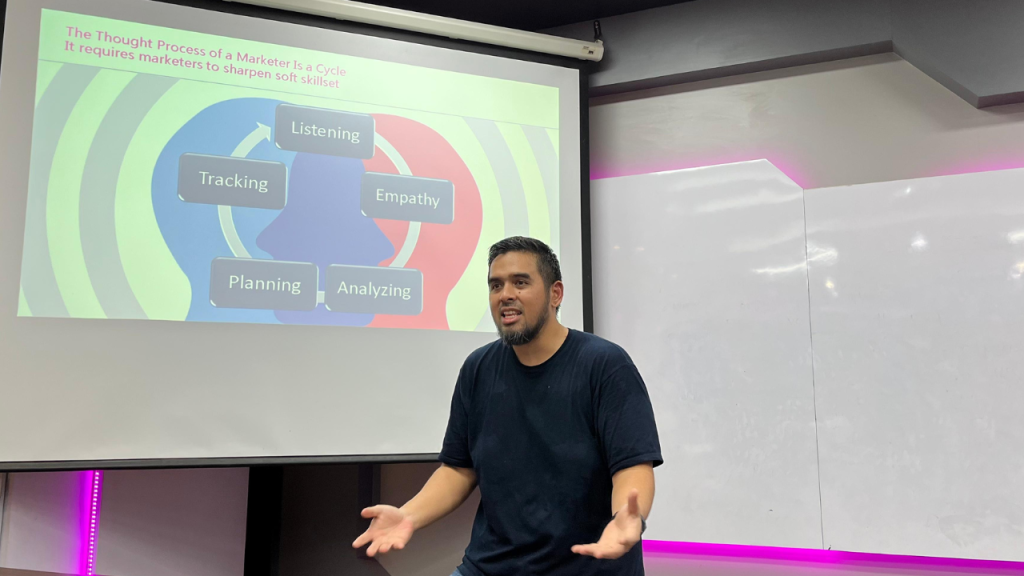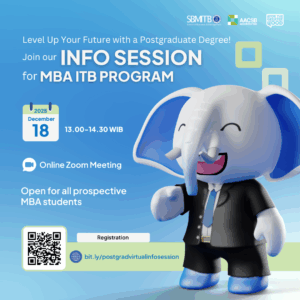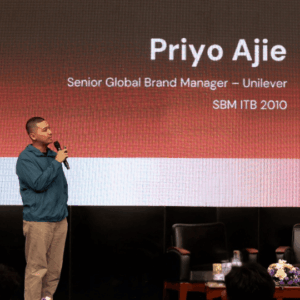Business-to-business (B2B) sales typically have lower profit margins than business-to-consumer (B2C) sales, resulting in lower marketing budgets for B2B. Given these budget constraints, B2B marketers must be wiser in their spending.
“In B2B marketing, we don’t have many bullets, so we have to fire our bullets at the right time,” said Muhammad Rafiq, the Head of Segment Marketing & Inside Sales at Indosat Business, during a guest lecture to Executive MBA students at SBM-ITB), on Monday (3/6).
According to Rafiq, B2C marketing requires a strategy to target as many potential customers as possible. However, this approach does not apply to B2B marketing. “B2C markets are high volume and low value, while B2B markets are low volume but high value,” explained Rafiq.
B2B involves selling products to entities that run businesses. In this context, decisions are made to represent the interests of the entire organization, not just one department. “The essential soft skills for B2B marketers are listening, empathy, analyzing, planning, and tracking,” said Rafiq.
Listening involves understanding the business problems customers face, while empathy means comprehending what customers want, considering the business context in which they operate. Business problems can be diverse, but as an IT company, Indosat usually addresses business efficiency issues. After identifying customer needs, marketers must analyze and translate them into product features, which inform the planning stage.
According to Rafiq, planning is the most challenging skill because it involves decision-making. The marketer’s role is to determine the company’s direction after analyzing all the information.
The final skill is tracking. Tracking in B2B differs from B2C because the sales cycle is longer, making real-time data recording difficult.
Given the importance of B2B markets to companies, B2B marketers must hone their internal stakeholder management skills. B2B requires greater internal coordination due to the larger sales value per transaction. Larger transactions take longer and require more internal coordination.
Rafiq shared an example where he received a B2B sales prospect in January 2018 but only closed the sale in June 2019. In such cases, patience and stakeholder management skills are crucial for a smooth transaction.
Customer loyalty programs in B2B must be carefully implemented. B2B marketers must be creative in incentivizing loyalty programs without violating legal regulations, as anti-gratification laws are prevalent in Indonesian businesses.
“Navigating legal boundaries in B2B loyalty programs is an art,” said Rafiq.
One tactic Rafiq frequently uses to attract B2B customers is inviting employees from client companies as speakers at Indosat events. This makes customers feel appreciated and increases the frequency of interactions between Indosat and B2B clients.







